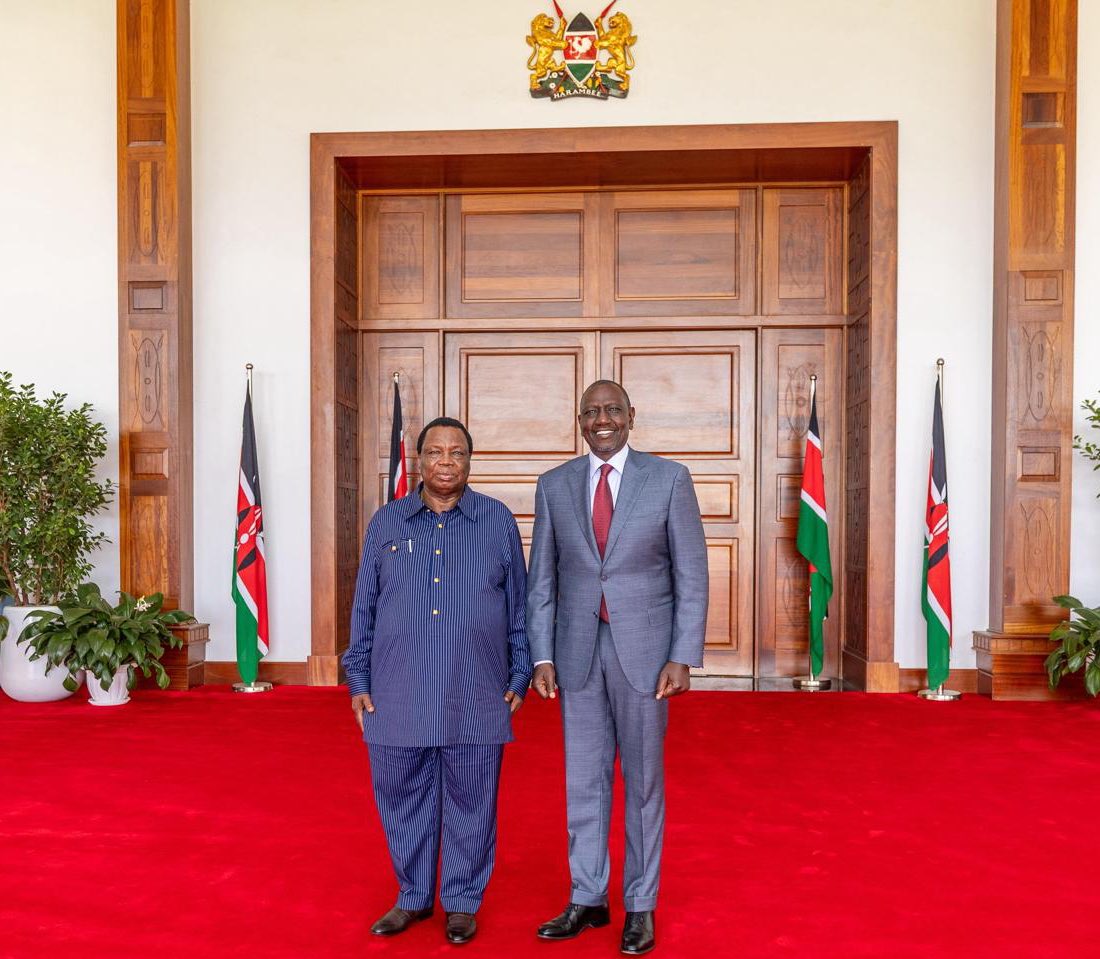 President William Ruto and Cotu boss Francis Atwoli at State House on June 18, 2025. PHOTO/X/Francis Atwoli.
President William Ruto and Cotu boss Francis Atwoli at State House on June 18, 2025. PHOTO/X/Francis Atwoli.In a statement, Cotu Secretary General Francis Atwoli said a meeting with the President at State House on Wednesday, June 18, 2025, resulted in the suspension of market construction projects funded through the Affordable Housing Levy.
Atwoli, who was accompanied by Assistant Secretary General Ernest Nadome—also a member of the Affordable Housing Board—said the meeting yielded “critical commitments” aimed at safeguarding the interests of Kenyan workers.
Cotu also revealed that funds already used to construct markets under the programme will be refunded to the Affordable Housing Fund.
Atwoli stated that, moving forward, levy funds will be used exclusively for physical and social infrastructure located within affordable housing projects.
“In exceptional circumstances, such as where a school cannot be constructed within a housing project, support may be extended to a nearby facility, but only if it serves the fund’s primary objective,” Atwoli explained.
In what is seen as a major win for salaried workers, Atwoli said the government had committed to giving priority to salaried employees—who are the main contributors to the levy—in the allocation of housing units.
“Salaried workers will now automatically be considered for housing units, excluding those reserved for the social housing category,” he said.
The government has also reduced the required down payment
for allocated housing units from 10 per cent to 5 per cent of the purchase price.
The move is expected to ease access to homeownership for workers.
To recover misapplied funds, the Affordable Housing Board will form a special committee, with members drawn from both national and county governments.
“The committee will oversee the recovery and reallocation of funds spent on market construction back into the housing programme,” Atwoli said.
Cotu welcomed the outcome of the talks and thanked President Ruto for what it described as a transparent and constructive engagement.
“We appreciate the government’s commitment to protecting the interests of Kenyan workers, particularly regarding the use and administration of the Affordable Housing Levy,” said Atwoli.
The union reaffirmed its commitment to ensuring that workers' contributions are used strictly for their intended purpose under the Affordable Housing Programme.
Cotu had previously opposed what it described as a covert move by the government to use money from the Affordable Housing Levy to fund the construction of markets, schools, hospitals, and toilets.
Atwoli claimed that the union was excluded from the drafting of regulations that would allow withdrawal of levy funds for supportive amenities around affordable housing projects.
“As Cotu, we are clear and unequivocal that there was no consultation. If there had been, we would never have agreed to the use of the levy to build amenities and infrastructure already covered under the National Budget,” Atwoli said on June 7, 2025.
However, Principal Secretary for Housing Charles Hinga insisted that Cotu was involved in drafting both the Affordable Housing Act and its supporting regulations. He defended the decision to use levy funds for amenities such as markets.
“Affordable housing is not just about putting up homes. It’s about creating complete environments where people can live, work, and thrive,” PS Hinga said.
In response, Cotu challenged Hinga to provide proof of the union’s participation in the process.
“If indeed PS Hinga claims that Cotu was involved, we challenge him to produce any written resolutions, minutes, or official correspondence from Cotu’s Executive Board endorsing the drafting or content of the current regulations,” Atwoli said.








